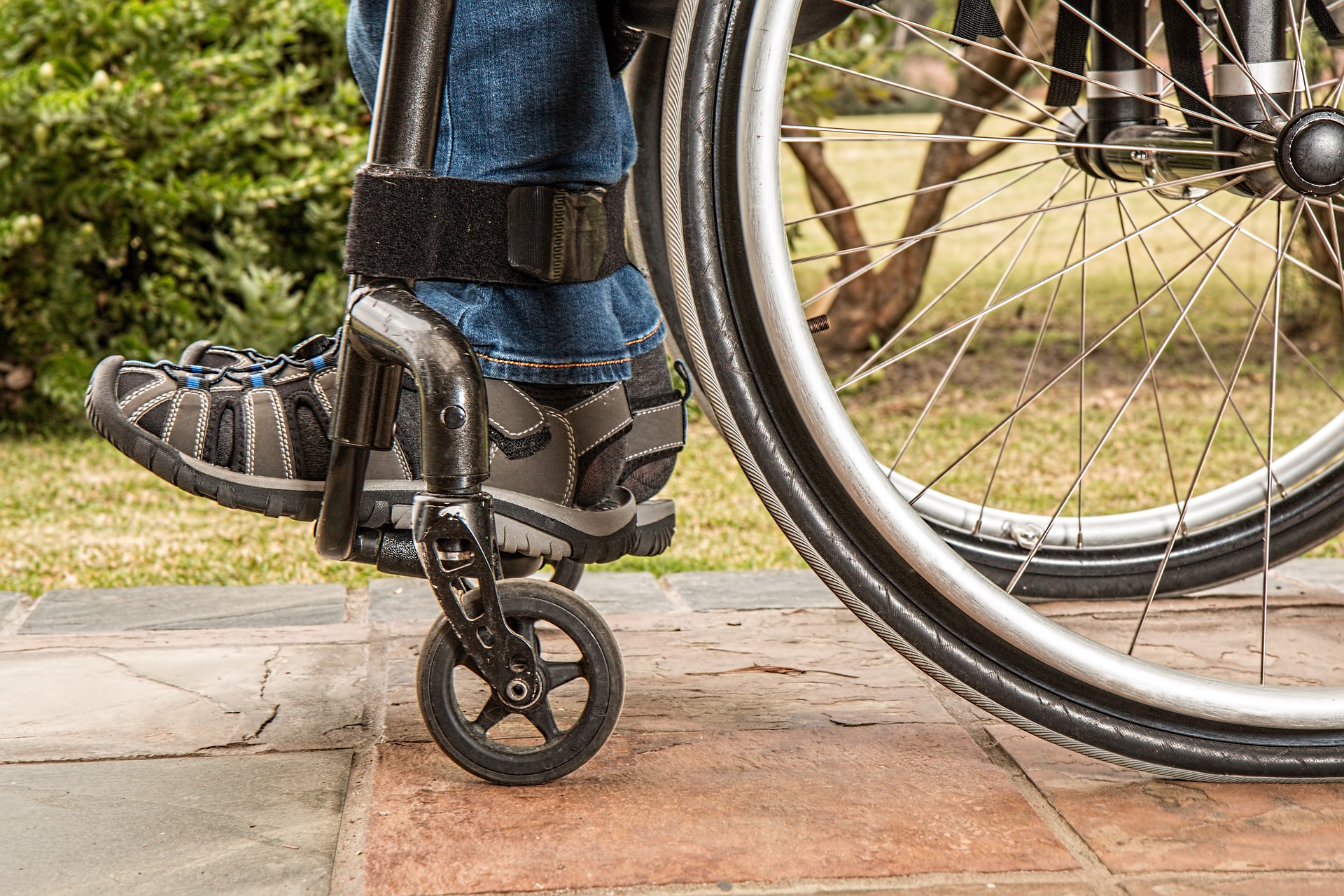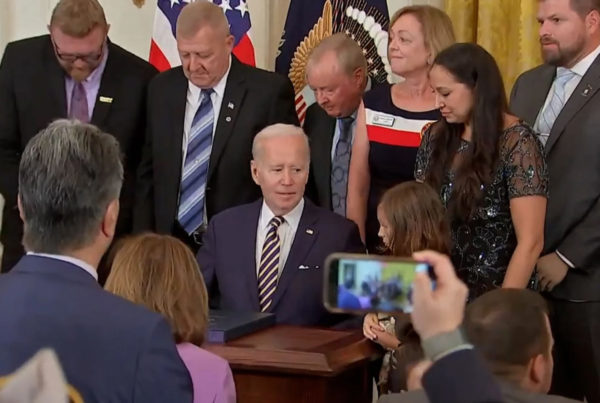While hourly workers in a variety of industries have seen significant pay increases in recent years, especially since the pandemic, attendants who assist people with disabilities in their homes remain stuck. In Texas, personal care attendants make a starting wage of just $8.11 an hour. Their pay has increased by roughly $1 per hour since 2013.
For people with disabilities who rely on attendants to assist with daily living tasks, including bathing, dressing and toileting, the difference between what a caregiver makes, and the wages available in other fields, means it can be difficult to find and keep attendants. Alex Stuckey wrote about this for the Houston Chronicle. She told Texas Standard that advocates and people with disabilities have been seeking higher attendant pay from the Legislature for years, and that effort will likely continue during the upcoming legislative session. Listen to the interview above or read the transcript below.
This transcript has been edited lightly for clarity:
Texas Standard: I guess strictly speaking, people could pay more, but a lot of folks who need this help don’t have more to offer, right? Personal care attendants work directly for people with disabilities in their homes, right?
Alex Stuckey: Yes. These are people who are getting some assistance, if not total assistance from the state for these services. So they’re kind of locked into the pay. And so, yes, your starting pay is $8.11 an hour. But as you spend a couple of years in the job, it can increase, but it doesn’t increase much.
So the pay actually comes from the state, not from the individual who’s being served.
That’s correct.
What’s the impact on a disabled person who doesn’t have attendant care or who can only get care on some days?
That’s something we’re seeing a lot now. People are unable to get the care that they’re allotted for. Some of the people I talked to are allotted for 50 hours of care a week and they’re only able to get about half of that. And so they have to rely on family members. But if they don’t have family members nearby or if they’re on their own, that puts them at greater risk to end up in an institution or a nursing home.
Well, you write that Texas ranks near the bottom among states when it comes to attendant pay. Can you give us an idea of how we compare with other places?
Yeah. So we rank 47th out of 50 states and Washington, D.C. And so our average pay, when you take into account small raises that people may get for years of service, we are at about $10 an hour and the average across the country is about $14 an hour. So we’re well below the national average. Some of the higher paying states are like Washington state, and some of those states pay $17 or so an hour.
I mean, people just drive around and see how some of these other jobs are being offered, starting pay at $15, $17, sometimes $20 an hour for retail work – that kind of thing. That’s got to be awfully attractive to some of these folks who are trying to do clearly what they’re led to do.
Yeah. And those retail jobs are a lot less difficult than the jobs that attendants do. They’ve got to be able to get people in and out of bed, help them shower, help them clean themselves, help them brush their teeth – there’s a lot of hard work that goes into this job.
Well, advocates have been to the Legislature, as I understand it, to ask for higher attendant wages before. Have they been successful at all? And do you foresee them returning in 2023 to the next legislative session?
Yeah, they’ve been going for more than a decade to talk to the Legislature about these wages. And while there has been incremental, very minimal increases since about 2007, they haven’t really seen much. Obviously, it’s still $8.11 an hour. So since 2013, I went back and calculated it. They’ve raised the wage less than a dollar an hour.
Are there estimates of what raising pay to the level advocates want would actually cost the state?
So, if they raised it to $17 an hour by 2025, it would definitely cost in the billions for sure. But it is significantly cheaper to give people care in the community, in their homes where they can still, you know, participate in society compared to if they put them in an institution or a nursing home.
Well, I think you anticipated what I was thinking. Supporters of pay increases say that attendant care actually saves money for the state in the long run. Could you say more about that argument?
It’s been calculated that it would save hundreds of thousands of dollars a person per year to keep somebody in the community in their own home versus having to put them in a nursing home. That’s because when they’re in their own homes, they’re still participating in the economy. And they’re also employing people. And when you put them in a nursing home, they’re not doing any of that. And the state is paying for them to be in that home and potentially giving them levels of care that they don’t necessarily need if they were just given a little bit of help in the community.
I mentioned at the beginning, the very low pay rate, around $8 and change. As a practical matter, it’s not like people who are getting this help can tip on top of that and that will help offset, I don’t imagine.
Right. I am sure there are people who need attendants and make enough money that they don’t need the state’s help so they can pay a higher wage potentially. But we’re talking about the people who need assistance from the state, who cannot afford to kind of hire multiple people to help them every single day. And so there really isn’t an ability to pay on top of this level.
How many people are we talking about in Texas who rely on this care?
Yeah, we’re talking about more than 300,000 people.













